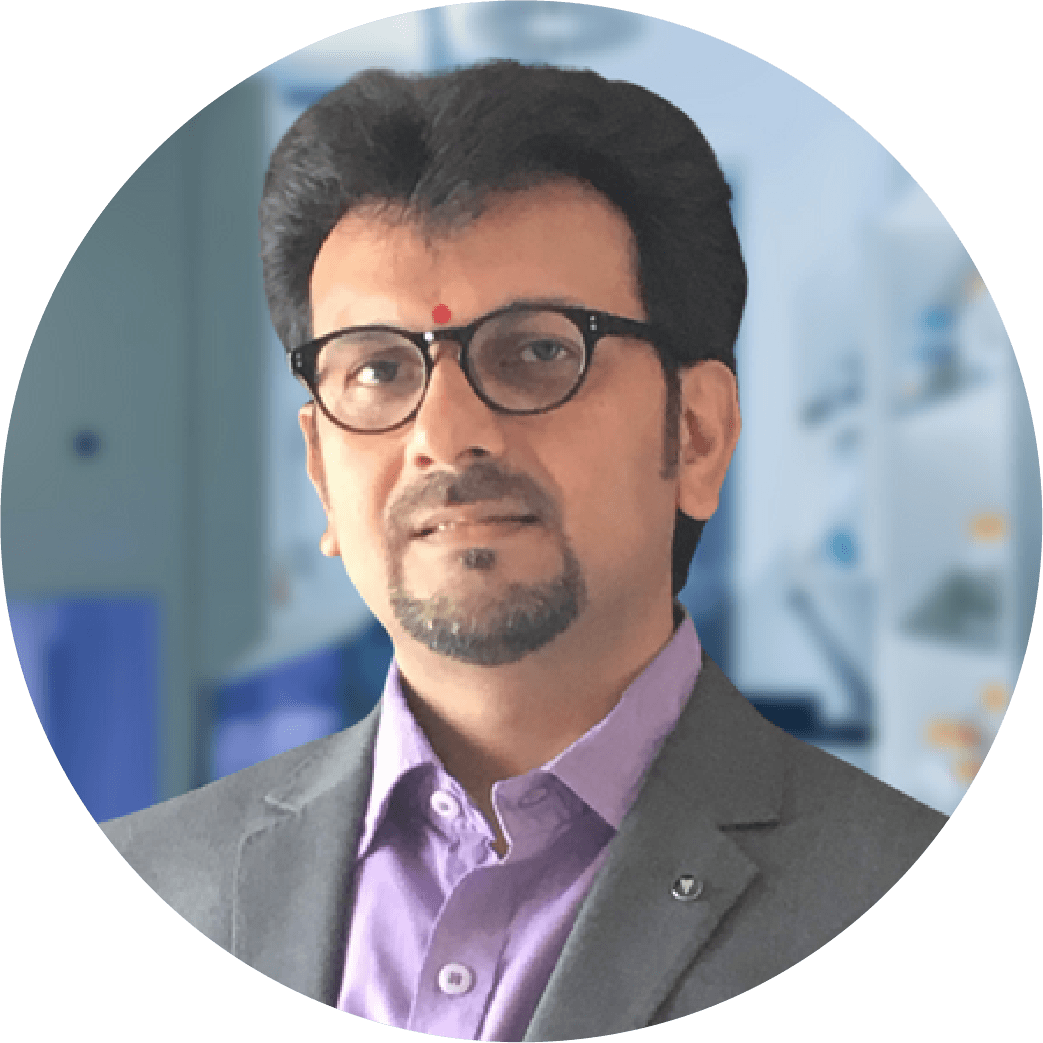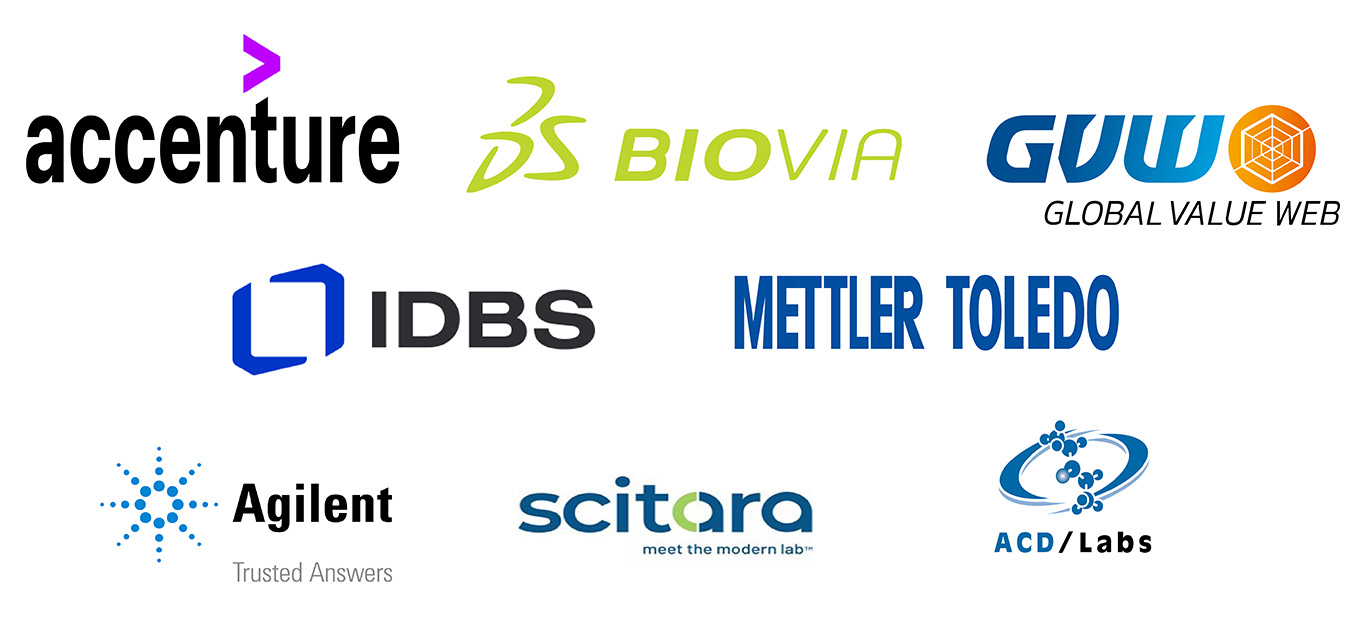Discover the PLA2023 India Program
 Unlocking Data: the new gold mine
Unlocking Data: the new gold mine
Raj Kumar Patra, Group Product Head – Quality & EHS/Supply at Reckitt
In today’s digital age primarily driven through technological innovations, data plays a key role to any organization’s success story. Whether it’s crucial business insights or trend analysis or investigative deep dive, data plays a crucial role in our life sciences and CPG industries.
Labs and R&D communities can benefit hugely from data led innovations and transformations if done correctly and scaled appropriately. Key is building the right foundations to then unlock multiple value streams powered through data pipelines and linked visualization solutions.
 Data-Driven Decision Making for Collaborative Innovation and Operational Excellence
Data-Driven Decision Making for Collaborative Innovation and Operational Excellence
Dinu Abraham, Head Tech Apps Pharma R&D and Quality at Lupin
In the pharma industry, data-driven decision-making is a pivotal force driving collaborative innovation and operational excellence. By harnessing the power of comprehensive data analytics, pharma companies can enhance R&D processes, optimize clinical trials, and improve manufacturing operations. Collaborative efforts across research teams are bolstered by data-driven insights, enabling quicker identification of potential drug candidates, and streamlining regulatory processes. Operational excellence is achieved through data-driven quality control, supply chain management, and adherence to stringent regulatory standards. Ultimately, data-driven decision-making not only accelerates the development of life-saving drugs but also ensures their consistent quality and availability, marking a transformative approach for pharmaceutical companies striving for excellence in patient care and market competitiveness.
Read more about this session >>> Opening Session: Data-driven approach leads to innovation
Followed by a Panel Discussion: How to adapt to the new data-driven mindset
 Transform your R&D with Digital Innovation and Legacy Wisdom
Transform your R&D with Digital Innovation and Legacy Wisdom
Saravanan Ilangovan, Associate Director in ELANCO’s Clinical Operations
Elanco has been part of Eli Lilly’s animal health business for more than 50 years. When Elanco separated from Eli Lilly, the two companies also had to separate their businesses and data in a very short period of time. Despite these special business circumstances, Mr. Ilangovan will present a typical situation where the main goal is harmonization and standardization. This is a remarkable challenge, considering that structured and unstructured data have different formats and that legacy systems usually work in silos to begin with. Saravanan will share with us his company’s strategy to implement a “one-system” approach” while employees work without interruptions.
 Path to the Cloud for GXP Systems
Path to the Cloud for GXP Systems
Madhurima Putcha, IT&D Product Manager at Reckitt
With so much of cloud transformations happening everywhere, Life science industry is also taking steps towards the cloud transformations. While for technology-oriented systems have better approach towards cloud, it is always a complex path when we try to move a GXP/regulatory and highly human sensitive data into cloud. I will be talking about my experience in migrating some of LIMS and Clinical related system into IaaS and SaaS clouds and how easy or difficult it was for us to achieve this transformation without disrupting the business process.
Read more about this session >>>Data Migration Strategies Session at the PLA2023India
Followed by a Panel discussion: How to ensure flawless migration to new technologies
 Human factor is key for successful implementation
Human factor is key for successful implementation
Mr. Kamlesh Padiya, Director at SynVision Chem Pvt. Ltd
With nearly 20 years of experience implementing ELN and LIMS, Kamlesh will share his matured reflexions and conclusions about what prevents companies from getting the most out of these implementations. Everyone uses barcode reading in every store these days to capture and pay for merchandise. So what’s holding analysts, back at work, from realizing the full potential of an ELN ?
Change management, the mindset challenge, the cultural shift, the user interface … or the need to properly involve all business experts in defining the new digital processes and configuring the systems?
A deep analysis that Kamlesh will share with PLA2023India attendees to make them think and bring it to your teams.
 Approach “3A-3C” for better digital-GxP 4.0
Approach “3A-3C” for better digital-GxP 4.0
Chandra Sai Dusanapudi, Assistant General Manager at Aurobindo Pharma Ltd.
Chandra has recently published the 3A-3C approach to digital solutions in the pharmaceutical and healthcare sector and will further develop the 3A3C concept during his presentation.
Chandra proposes a better approach to overcome the current challenges in the digitization of the Pharma sector. 3C, the challenges: Compliance, Cost-effective solution, Comfy to use by end users. 3A, the key steps to achieve the 3C: Analyze the requirements, Assess the best fit to purpose solution and vendor, Adopt the solution at its best
Followed by Panel discussion: How to anticipate mayor delays during implementation
The challenges and the good practices in the data quality leading to a good AI and ML model
 Use Cases of drug discovery automation and ML models
Use Cases of drug discovery automation and ML models
Samiron Phukan, Senior director Computational (AI/ML) Modelling & Digital Transformation integrated Drug Discovery and Development at Aragen LifeSciences
Samiron Phukan has nearly 20 years of experience in the field of informatics driven solution in drug discovery and development. He had worked in various pharmaceutical companies and CROs in India in the field of drug discovery and development from concept to clinic in various therapeutic areas like oncology, metabolic disorders and anti-infectives using computational modelling and informatics. He had set up the state-of-the-art informatics laboratories in various pharmaceutical companies like Jubilant Biosys, Dr. Reddys’s Laboratories, Lupin ltd. Presently he is heading the CADD/informatics division in Aragen Lifesciences Hyderabad. In addition to his current role of heading the scientific team of computer aided drug design scientist, he is involved digitization, automation and development of various proprietary platform technology using ML tools to aid drug discovery and development.
How communication and data standards enable the automation and data management lifecycle
Burkhard Schaefer, SiLA Board Member, AnIML Task Group LeadCommunication and data standards form the bedrock of efficient laboratory processes. This presentation explores the role of SiLA (Standardization in Lab Automation) and AnIML (Analytical Information Markup Language) in driving automation, data management, and machine learning. SiLA ensures seamless instrument control and workflow orchestration, while AnIML structures data for consistent analysis and collaboration. Learn how the synergy between these standards fuels closed-loop experimentation, enabling optimized parameter adjustments using real-time insights. Through real-world cases, this presentation discusses the impact of standards in shaping modern laboratory practices, fostering innovation, and accelerating research.
Followed by Panel Discussion: How to set standards for the Lab 4.0
 Laboratory Digital Maturity: Measuring & Plotting the Future
Laboratory Digital Maturity: Measuring & Plotting the Future
Jeremy Ward, Managing Director at Accenture Scientific Informatics Services
The level of digital maturity in an organization should be assessed as a basis for shaping a path forward. Leaders who are confident in their progress should know that true digital maturity can look different than traditional approaches. That's because maturity is a moving target. As standards have changed, digital maturity is a never-ending journey rather than a destination.
Followed by a Panel Discussion: How to align the Companies Experience with their Data
INTERACTIVE WORKSHOP SESSIONS
Digitalization and the data life cycle begins at the lab bench instruments
In this workshop you will see how the use of current technology will improve the work environment – digital transformation.
Laboratory managers and operators routinely face challenges to adhere to data integrity regulations, while aiming at increasing workflow efficiency. Adding the technical controls to instruments improves business processes at the same time it adds the necessary controls for data governance.
Regulators are increasingly requiring labs to get current with technology (the "c" in CGMP). Regulatory guidance from WHO even advocates process efficiency with technology.
The benefits of managing data in a fully electronic process provides business benefits and regulatory compliance with data stored in one medium. You will see that even simple instruments (Balances, pH, KF, etc.) with digital/technical controls create efficiency, data control, and data that is ready for analytics.
Pathways to Business Transformation
Manufacturing Analytics Made Easy
In this session, Dr. Anand Krishnamurthy is going to uncover potential opportunities on how to make life easier for time-consuming and error-prone processes like CPV APQR, Tech Transfer, and many more by gathering required data from disparate sources across the
organization with contextualization to take business decisions which comply with ever changing regulatory requirements.
Digital Scientific Platform for CROs
As a CDMO/CRO, you work with multiple innovator companies the need for seed is much greater than ever. Hear from Mr.Yogendra Yadav
on how the new generation of unified digital platforms can optimize lab operations and achieve the much-needed collaboration across the R&D spectrum resulting in measurable overall efficiency and increased productivity.
Life Sciences Value Chain Data Backbone of the Future: From Concept to Realization Overview
In this session, GVW shall also share our insights on how we enable digital innovation across the life sciences value chain, including Patient Data Anonymization, Product Life Cycle Management, Intelligent Automation, Manufacturing Intelligence, and Value Chain Data Backbone.
Managing R&D data for faster and efficient workflows with IDBS POLAR platform
IDBS has been at the forefront of helping R&D labs innovate faster and better by providing data management platforms by cutting down transcription time and errors, streamlining the experimental execution, as well as traceability of material, equipment and sample life cycle. A significant of time energy and effort of a R&D lab is spent in non-scientific activities of managing the data such as collection, analysis, assembly, reporting, storage and access. During this workshop we demonstrate the value of the IDBS platform as a partner in digital transformation of the R& D lab and the benefits for lab scientists, managers and data managers.
PLA2023India Sponsors: Exhibitors and Workshop owners

NOT DECIDED YET?
Make sure to remain informed on the latest






